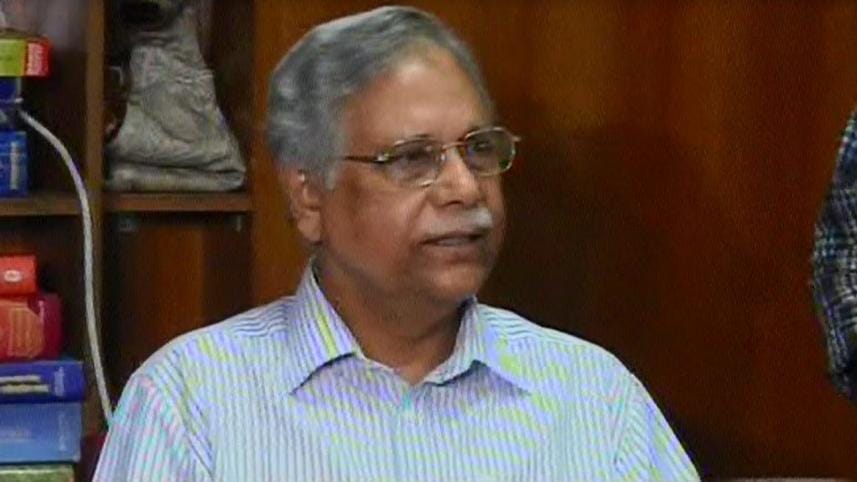‘Law isn’t meant for harassing SC judges’

The government's move for enacting the Supreme Court Judges (Investigation) Act-2016 is not aimed at harassing any judge, Bangladesh Law Commission Chairman ABM Khairul Haque said today.
The draft law has been approved just to probe the misconduct or incapacity against the judges, Haque, also former chief justice, told press conference at Law Commission office today.
"The investigation of the judges' misconduct and incapacity will be held secretly at the parliament, not publicly," he said.
READ MORE: Draft law approved to probe misconduct
"Its' main aim is to investigate the misconduct, not to remove the judges," the law commission chairman said.
The cabinet yesterday approved in principle the draft law specifying the procedures for investigation into allegations of misconduct or incapacity against a SC judge and the judge's removal by the Jatiya Sangsad.
On September 17, 2014, the JS unanimously passed the 16th Constitutional Amendment Bill through which it got back the powers to remove SC judges for misconduct or incapacity.
The move to enact the draft law came 19 months after the constitutional amendment.
The draft law says any aggrieved citizen with evidence would be able to file with the Speaker complaints of misconduct or incapacity against an SC judge.
The Speaker would then form a 10-member JS body to probe the allegations. And it would submit a primary report to the Speaker within a week.
If the report says the allegations against the judge concerned were true, the Speaker would form a high-powered committee with a former chief justice, an ex-attorney general and a noted jurist or an eminent citizen to review the report.
If the committee recommends removal of the judge concerned, the recommendation would be placed before the JS for discussion. And if adopted by two-thirds of the lawmakers, it would then be sent to the president for approval.



 For all latest news, follow The Daily Star's Google News channel.
For all latest news, follow The Daily Star's Google News channel.
Comments